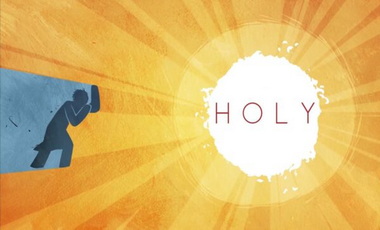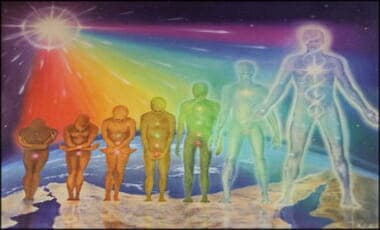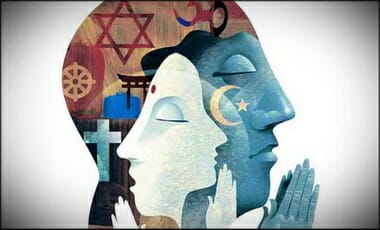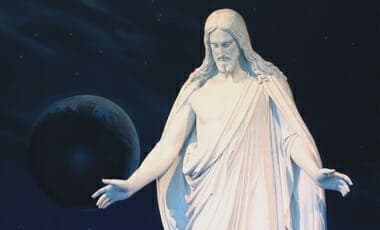Just thought of this today. I have dealt with in the past the “sinfulness” of “god,” in Mormon theology. See my main post on the issue just updated with PDF inks to resources and video to help explain this fact of LDS theology — as well as GOD NEVER SINNED website.
And in conversation as to whether Jehovah’s Witnesses AND Mormons are Christian “denomination’s.” (Not an official denomination like Lutheran or Baptist, rather, should they be considered as part of the Christian faith in their essence.) Here is some of my responses — if they make sense:
Mark is closer in thinking J-Dubs are a “christian” theological cult…. they AT LEAST posit Jehovah as the Creator of the space-time continuum. Creation ex nihilo. Mormons believe Heavenly Father was born [through sexual congress] into this cosmos…. and thus, natural laws impose laws of nature on these gods. In fact, there was no time material did not exist apart from these spirits, and then men, and then exalted men. After my routine with Mormons, I always end with, your “god” is too small.
[….]
Jeff, I guess the easiest way to categorize this in a quip like fashion is to say Jehovah’s Witnesses could incorporate the Ontological Argument into their understanding/apologetic. However, the LDS cannot use that philosophical apologetic. The Mormons cannot be included or acclimated into the theistic understanding of the Judeo-Christian God. YHWH. The I AM. And is not Holy, Holy, Holy. In Mormon theology there is nothing “maximal” about their “god”
The Ontological Argument
BONUS via …
Dictionary of the Later New Testament and Its Developments
2. The Old Testament Background
2.1. The Fundamental Character of God. The starting point for an understanding of these words in the NT and other early Christian writings is the OT. The OT writers reiterate that the Lord God is holy (Lev 19:2; 21:8; Josh 24:19; Ps 22:3; Is 57:15, passim)—“holy” being the fundamental characteristic of God under which all other characteristics are subsumed—and that humans are sinful (Gen 18:20; 1 Kings 8:46; Ps 51:3; Eccles 7:20, passim).
As holy, God is transcendent above, different from, opposite to, Wholly Other (Otto, 6, 25), separate from sin and sinful people (Is 6:1–9; 55:8, 9; cf. Ex 19:20–24; Num 18:3; Heb 7:26). Sinful people, who have become so by their own choice against God (Gen 2:16, 17; 3:1–7; cf. Rom 5:12), are thereby alienated from God and powerless in that they are incapable of closing the chasm that exists between themselves and God, between the holy and the unholy (Is 50:1; 59:1, 2). God, the Holy, is also the “I am, the One who is” (Ex 3:14): God is Life. For people to be separated from God because of their sin is for them to be separated from Life. Those who were made for the purpose of living (cf. Gen 1:26) are faced with its opposite—death (Ezek 18:4).
2.2. The Actions of God. God, however, did what humans could not do. The holiness of God cannot be described merely as a state of being indicative of what God is, but also as purposeful, salvific action indicative of what God plans and carries out. The OT viewed God as transcendent in that he was distinct from sinful humans but not remote or indifferent to them (Snaith, 47). God took the initiative to make the unholy holy, to make the alien a friend, to reconcile sinners to himself (see Salvation).
An example of this is when God the holy One took the initiative to reveal himself to Israel at Sinai and to call this people out from among other nations into a special personal relationship with himself through covenant, law and sacrifice (Ex 20, 24:1–8; Lev 16). Thus, it was God who made Israel a priestly kingdom and a holy nation (Ex 19:6; Deut 7:6), a people that must preserve its distinctiveness by pursuing a way of life different from that practiced by other peoples (Deut 7:5–6; see Levine, 256), a people fit for the service of God and dedicated to do his will, a light to the nations around them (Is 49:6).
Because of God’s special relation to parts of his creation it was possible even for things to be called holy—holy only in the strict sense that they were different from the profane—wholly given over to divine purposes: the ground around a burning bush (Ex 3:5), Jerusalem (Is 48:2), the temple (Is 64:10), the Sabbath (Ex 16:23), priestly garments (Ex 31:10), and so on.
2.3. The Ethical Response to God. The OT meaning of “holy/holiness,” however, is not exhausted with such ideas as “separate from,” “dedicated to,” “sacred” and the like, although these may have been the primary meanings of the words. There are also ethical and moral meanings attached to them. Again such meanings find their origin in the nature of God, for the nature of God is the determining factor that gives meaning to everything (2.1 above). Leviticus 19:1–18 clearly illustrates the moral side of God’s holiness. Here it becomes clear that to be holy as God is holy is not simply to be pure and righteous, but to act toward others with purity and goodness, with truthfulness and honesty, with generosity, justice and love, particularly toward the poor and those who are in no position to help themselves (see esp. Lev 19:9–10, 14). Religion and ethics, the sacred and moral, belong together in the OT; relationship to the Lord God of the OT demands an ethical/moral response. God’s people must not only be like God but also act like God.
3. The Idea of the Holy in the New Testament and Apostolic Fathers
The meaning of the words holy and holiness, although expanded in the literature under study, is squarely based on the writings of the OT. The primary meaning of holy as “separate from” is to be found in the actions of Paul and others who engaged in purification/sanctification rites (hagnizō, hagnismos) by which they ceremoniously separated themselves from the profane so as to be considered fit to enter the sacred precincts of the house of a holy God (Acts 21:24, 26; 24:18; cf. Num 6:5, 13–18; see Douglas, passim; also Barn. 8.1; 15.1, 3, 6–7). That narrow but fundamental meaning of “holy” is nevertheless inadequate to interpret all the texts that treat this concept.
3.1. The Holiness of God. In our early Christian writings “the holiness of God the Father is everywhere presumed … though seldom stated” (Procksch, 101). Nevertheless it is stated: God’s name, the very essence of his person, is holy (Did. 10.2; 1 Clem. 64). Making use of the vocabulary of Leviticus, especially the Holiness Code in Leviticus 19–26, Peter tells those to whom he writes that it is incumbent upon them to be holy as God is holy (hagios, 1 Pet 1:15–16; cf. Lev 19:2; see Selwyn).
The writer of Hebrews explains the disciplinary action of God as his creative work in human lives so that they may share in his holiness (hagiotēs, Heb 12:10). Once again the trisagion (see Liturgical Elements) is sung to God (cf. Is 6:3), this time by the four living creatures of the Seer’s vision—hagios, hagios, hagios (holy, holy, holy). They acclaim that God is holy to the ultimate degree and as such is the Almighty, the Pantokratōr, the one who is, who was and who is to come, eternal and omnipotent, transcendent, Wholly Other (Rev 4:8; see also 1 Clem. 34.6; 59.3). Those who were victorious over the beast sang, “Great and amazing are your deeds, Lord God the Almighty!… For you alone are holy” (hosios [hagios] Rev 15:3–4; 1 Clem. 59.3), and the angel of the waters, “You are just, O Holy One” (ho hosios, Rev 16:5). The martyrs, asking for vengeance upon those who slaughtered them for serving God, address God as “Sovereign Lord, holy and true (ho hagios kai alēthinos),” because they know that God, as holy, stands apart from and opposed to sin and evil and that he alone is able to administer justice and judge rightly (Rev 6:10).
God as holy is to be feared (cf. Ps 89:7; 99:3; 111:9); he is a consuming fire (Heb 12:29). He owns the right to judge and to take vengeance (cf. Deut 32:35). But in the NT and other early Christian writings God takes no delight in banishing sinners from him. He delights instead in making them holy, in creating a people fit for his presence, in bringing them close to himself and in giving them sacred work to do (cf. Is 6:1–8). As a consequence God sends his good news (see Gospel) out into the world so that sinful people may “turn from darkness to light and from the power of Satan to God, so that they may receive forgiveness of sins and a place among those who are sanctified [hēgiasmenoi],” i.e., among those who have been made holy and have been set apart to God (Acts 26:18; cf. 20:32). It is important to note here that the expression “those who are sanctified” is a passive participle (from hagiazō, make holy, consecrate, sanctify) that has been termed a “divine passive.” That is, God is the agent of the action. He has taken the initiative not to destroy sinners but to make them holy (cf. Herm. Vis. 3.9.1).
It is God’s will that sinful people be made holy (Heb 10:10). But it was costly for God to realize this wish. Under the old covenant sinners were made holy on the basis of animals being properly sacrificed year after year in their behalf (Lev 16)—tentatively made holy (cf. Rom 3:25; Heb 10:4). Under the new covenant sinners are made holy or sanctified (hēgiasmenoi/hagiazomenous) by a much more profound act—the conscious, deliberate choice of Jesus Christ, God’s Son, radically to obey his Father and offer his body in death as a single sacrifice for sins forever (Heb 10:5–10, 12, 14, 29; cf. Phil 2:8; Diogn. 9.2; see Death of Christ). The blood of Jesus (an expression that refers to the self-determined action of Jesus to die on behalf of sinful human beings) is that by which sinful persons are made holy. The explicit purpose of his suffering and death was that the unclean might become clean, that he might make unholy people holy (hagiasē, Heb 13:12; see also 9:13; 1 Clem. 32.4; 59.3; Barn. 5.1).
In the writings under consideration, as in the OT, places and things as well as persons can be considered holy. Thus the temple is called “the holy place” (Acts 6:13; 21:28). The two tents of the tabernacle are referred to as “the holy place” (hagia, Heb 9:1) and “the Holy of Holies” (hagia hagiōn, Heb 9:3; see also 9:1, 12, 24, 25; 10:19; 13:11). The mountain on which Jesus was transfigured is designated as “the holy [hagios] mountain” (2 Pet 1:18; cf. Barn. 11.3). The Christian faith is termed “the most holy [hagiōtatē faith” (Jude 20). Jerusalem is called “the holy [hagian] city” (Rev 11:2; 21:2, 10; 22:11, 19). Presbyters are holy (Ign. Magn. 3.1), the Eucharist is holy (Did. 9.5), the church is holy (Herm. Vis. 1.1.6; Mart. Pol. presc.), prophets are holy (Acts 3:21; 2 Pet 3:2), angels are holy (Acts 10:22; cf. Jude 14; Rev 14:10; 1 Clem. 39:7; Herm. Sim. 5.4.4; Herm. Vis. 5.5.3).
3.2. The Holiness of Jesus Christ. The NT describes Jesus as holy, a person set apart to God, anointed by him (Acts 4:27; see Anointing), dedicated to God and designated as his unique instrument to carry out his predestined plan in the world (Acts 4:28). But holy is also used of Jesus as it is used of God the Father.
The early church understood Psalm 16:10, said to be written by David and about David, to have had its fulfillment in the resurrected Jesus—“You will not … let your Holy [hosion] One experience corruption” (Acts 2:27; 13:35). Peter referred to Jesus as “the Holy [ton hagion] and Righteous One” (Acts 3:14), seemingly in the moral sense of innocent since he linked the word so closely with the anarthrous dikaion (“righteous”—ton hagion kai dikaion; cf. Lk 23:47 and see Conzelmann, 28). In a later sermon Peter speaks of Jesus as God’s “holy [hagion] servant/son” (pais, Acts 4:27; 30).
But the NT and early Fathers say more than this about Jesus. He is the one who makes others holy (ho hagiazōn, Heb 2:11; 13:12), who consecrates them to God and his service that they might be admitted into his presence (cf. Procksch, 89–97). “Jesus is here [in Heb 2:11] exercising a divine function since, according to the OT, it is God who consecrates” (Montefiore, 62; cf. Ex 31:13; Lev 20:8; 21:15; 22:9, 16, 32; Ezek 20:12; 37:28; but see Attridge, 88 n. 107).
Borrowing the language of Isaiah 8:12–13 Peter calls upon Christians to “sanctify [hagiasate] Christ as Lord” (1 Pet 3:15). They are to acknowledge that he is holy (cf. Is 29:23; Ezek 20:41; Ecclus 36:4, Mt 6:9)—holy in the sense that God is holy—for as J. N. D. Kelly has remarked, this verse “has a bearing on 1 Peter’s Christology.… [As] in ii,3 the title ‘the Lord’, which in the Hebrew original denotes God, is unhesitatingly attributed to Christ” (Kelly, 142; see Christology; 1 Peter).
“The Holy One,” a frequent name of God in the OT (2 Kings 19:22; Ps 71:22; 78:41; Is 1:4, passim), appears also in 1 John 2:20 (“you have been anointed by the Holy One [tou hagiou]).” Although there is debate over whether this expression refers to God the Father or to Jesus Christ, in light of the context and especially in light of 2:27–28 it seems more likely that it is a title given to Jesus (see also Diogn. 9.2).
In his vision the Seer reads a letter addressed to the church at Philadelphia. It begins, “These are the words of the Holy One” (ho hagios, Rev 4:7). From the context of this letter (see Rev 2:18; 3:1) this Holy One is none other than the crucified, dead and risen Christ, the one who was and is and will forever be (Rev 1:17–18; cf. Rev 4:8; Diogn. 9.2). These writers want everyone to understand that Jesus is holy in the sense that God is holy—“holy [hosios, a word chosen to emphasize the moral dimension of holiness], blameless, undefiled, separated from sinners, and exalted above the heavens” (Heb 7:26). In naming him “the Holy One” they claim for him the title of deity.
Gerald F. Hawthorne, “Holy, Holiness,” in Dictionary of the Later New Testament and Its Developments, ed. Ralph P. Martin and Peter H. Davids (Downers Grove, IL: InterVarsity Press, 1997), 485–488.
































